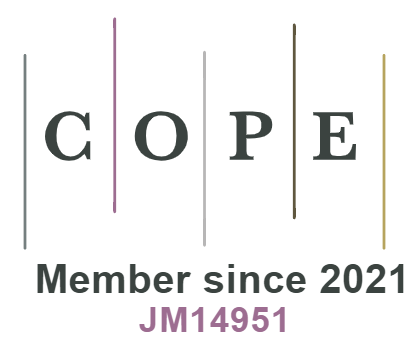Chewing and swallowing disorders in adults – from own research
DOI:
https://doi.org/10.18778/2544-7238.01.11Keywords:
dysphagia, chewing, swallowingAbstract
This article is a summary of a thesis devoted to the problem of chewing and swallowing in adults. It contains the description and results of the research conducted by the researcher on a group of 83 people, including 71 people living in the Social Assistance Home in Kalisz, who were diagnosed with different diseases. This issue has not yet been studied in Poland by speech therapists, and most of the available materials concerned dysphagia as a symptom associated with specific conditions and in discussing the development of swallowing and chewing activities in children. The presented research is part of the newly emerging branch of speech therapy – gerontologopedi.
Downloads
References
Belfasky P.C., Mouadeb D.A., Rees C. (red.), 2008, Eating Assessment Tool (EAT‑10), http://polykanie.reisspartners.pl/images/pdf/EAT_10pol.pdf (dostęp: 22.06.2016).
Google Scholar
Bergmaschi R. (red.), 2008, Dysphagia in Multiple Sclerosis (DYMUS), http://polykanie.reisspartners.pl/images/pdf/DYMUS.pdf (dostęp: 22.06.2016).
Google Scholar
Fuller G., Turaj W. (red.), 1999, Badanie neurologiczne – to proste, Wrocław: Elsevier & Partner.
Google Scholar
Gatkowska J., 2012, Diagnoza dyzartrii u dorosłych w neurologii klinicznej, Kraków: Wydawnictwo Uniwersytetu Jagiellońskiego.
Google Scholar
Grabias S., Kurkowski M., Woźniak T., 2007, Logopedyczny test przesiewowy dla dzieci w wieku szkolnym, Lublin: Wydawnictwo Uniwersytetu Marii Curie‑Skłodowskiej.
Google Scholar
Hamerlińśka‑Latecka A., 2015, Onkologopedia. Logopedia wobec chorób nowotworowych, Bydgoszcz: Wydawnictwo Uniwersytetu Kazimierza Wielkiego.
Google Scholar
Lampart‑Busse M., 2007, Połykanie – etiologia i wpływ na artykulację, „Logopeda. Czasopismo Internetowe”, nr 4, s. 132–136, http://www.logopeda.org.pl/resources/pliki/67_logopeda___nr_4.pdf (dostęp: 12.11.2016).
Google Scholar
Litwin M., 2009, Logopedyczna terapia zaburzeń połykania w chorobach neurogennych, „Logopeda. Czasopismo Internetowe”, nr 7, s. 125–128, http://www.logopeda.org.pl/resources/pliki/83_logopeda_nr_7_.pdf (dostęp: 12.11.2016).
Google Scholar
Litwin M., Pietrzyk I., 2013, Diagnoza i terapia dysfagii, Gliwice: Wydawnictwo Komlogo.
Google Scholar
Narożny W., Szmaj M., 2014, Zaburzenia mowy w dysfagii, [w:] S. Milewski, J. Kuczkowski, K. Kaczorowska‑Bray (red.), Biomedyczne podstawy logopedii, Gdańsk: Wydawnictwo Harmonia, s. 175–185.
Google Scholar
Nowak A., 1990, Zaburzenia połykania, [w:] F. Kokot (red.), Diagnostyka różnicowa objawów chorobowych, Warszawa: Państwowy Zakład Wydawnictw Lekarskich.
Google Scholar
Prosiegel M., Wagner‑Sonntag E., Scheicher M., 2000, Dysfagie neurogenne, „Rehabilitacja Medyczna”, t. 4, z. 3, s. 72–80.
Google Scholar
Stręk P., 2002, Diagnostyka dysfagii ustno‑gardłowej, „Terapia”, nr 10, z. 2, s. 12–15.
Google Scholar
Trapl M., Enderle P., Nowotny M. (red.), 2007, Gugging Swallowing Screen (GUSS), http://polykanie.pl/ (dostęp: 12.11.2016).
Google Scholar
Wskirska‑Woźnica B., Pruszewicz A., Walczak A., 2002, Zaburzenia połykania – postępowanie diagnostyczne i zasady rehabilitacji, „Przewodnik Lekarza. Otolaryngologia”, nr 9, s. 102–104.
Google Scholar
Downloads
Published
How to Cite
Issue
Section
License

This work is licensed under a Creative Commons Attribution-NonCommercial-NoDerivatives 4.0 International License.












